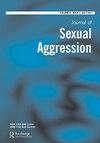Judging the legality of sexually violent tactics: a comparison between prosecuting attorneys in the United States and Colombia
IF 1.5
4区 社会学
Q2 CRIMINOLOGY & PENOLOGY
引用次数: 2
Abstract
ABSTRACT In order to study sexual violence internationally, it is helpful to understand similarities and differences in how sexual violence is conceptualised across countries. The current study examined prosecuting attorneys’ judgments about which sexual tactics legally qualify as sexual violence in two countries. Attorneys from the U.S. (n = 28) and Colombia (n = 24) evaluated whether 36 tactics would qualify as a sexual offense in their jurisdiction. Although Colombian and U.S. attorneys agreed on the legality of many tactics, Colombian attorneys judged more behaviours as criminal, on average, than U.S. attorneys. Within-country variations suggested that differences were due not only to different legal statutes, but also to different interpretations of laws. Open-ended responses illustrated sources of ambiguity, including lack of clarity about how much coercion is required and which behaviours indicate nonconsent. This suggests that vagueness within legal definitions may allow attorney judgements to be influenced by stereotypes and prejudices. PRACTICE IMPACT STATEMENT This study illustrates the vagueness of legal definitions of sexual violence in two countries—the United States and Colombia. This vagueness provides prosecuting attorneys with substantial power to interpret the law, and in this study, some attorney judgements of legality seemed to be influenced by stereotypes. Greater training for law students and attorneys about the realities of sexual violence may be helpful in undermining belief in rape myths that may inhibit attorneys from prosecuting certain sexual violence cases.判断性暴力手段的合法性:美国和哥伦比亚检察官之间的比较
摘要为了在国际上研究性暴力,了解各国性暴力概念的异同是有帮助的。目前的研究调查了两个国家检察官对哪些性策略在法律上属于性暴力的判断。来自美国的律师(n = 28)和哥伦比亚(n = 24)评估了36种战术在其管辖范围内是否符合性犯罪的资格。尽管哥伦比亚和美国律师对许多策略的合法性达成了一致,但哥伦比亚律师平均认为比美国律师更多的行为是犯罪行为。国家内部的差异表明,差异不仅是由于不同的法律法规,也由于对法律的不同解释。不限成员名额的答复说明了歧义的来源,包括不清楚需要多少胁迫以及哪些行为表明不受胁迫。这表明,法律定义中的模糊性可能会使律师的判决受到刻板印象和偏见的影响。实践影响声明这项研究说明了美国和哥伦比亚这两个国家对性暴力的法律定义的模糊性。这种模糊性为检察官提供了解释法律的实质权力,在本研究中,一些律师对合法性的判断似乎受到了刻板印象的影响。对法律系学生和律师进行更多关于性暴力现实的培训,可能有助于破坏强奸神话的信念,因为强奸神话可能会阻碍律师起诉某些性暴力案件。
本文章由计算机程序翻译,如有差异,请以英文原文为准。
求助全文
约1分钟内获得全文
求助全文

 求助内容:
求助内容: 应助结果提醒方式:
应助结果提醒方式:


